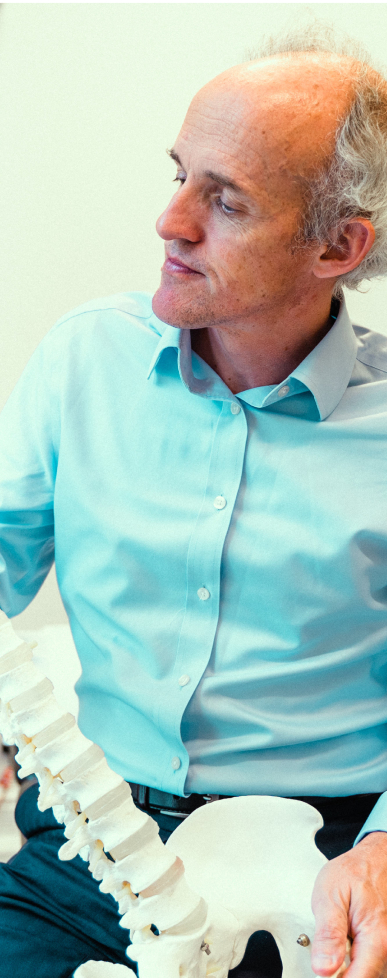Lumbar Decompression
Lumbar Decompression routinely and successfully performed
- From assessment to surgery within a week
- Minimally invasive surgery
- Nerves properly decompressed
- Fast recovery walking within hours of surgery
- Home the same day as surgery
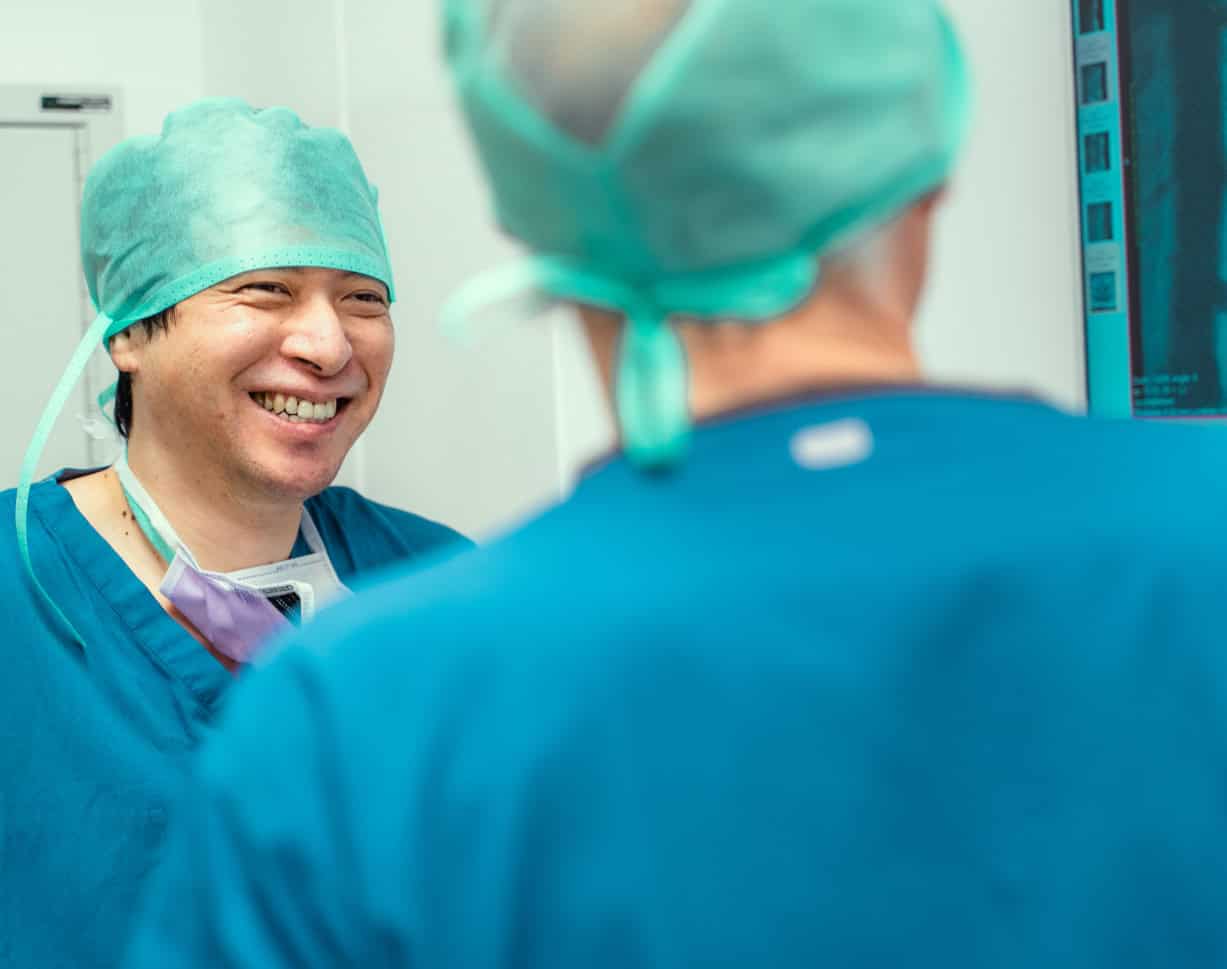
Lumbar decompression from the best spine surgeon in the country
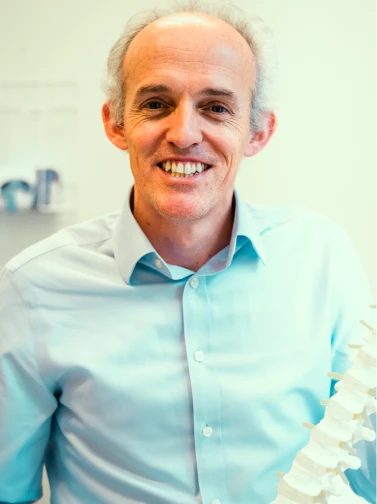
Caspar Aylott
B.Eng(Hons), MB ChB, MRCS, FRCS (Tr Orth), DM
Mr Caspar Aylott is a world renowned consultant spinal surgeon, uniquely dual qualified in the UK both as an Engineer and Spinal Surgeon. Amongst his other medical qualifications he also has a Doctorate in spinal biomechanics and motion preserving technologies in the spine from Nottingham University.
He is an expert in the diagnosis and management of all conditions of the back and neck specialising in both conservative and surgical treatments. Caspar lectures and regularly trains other surgeons in Europe and Asia in minimally invasive surgical techniques and biomechanics.
Caspar will be with you every step of the way from:
- Consultation
- Diagnosis
- Treatment
- Follow-up
FREE 15 minute
consultation
If you’re not sure then book a FREE 15 minute telephone consultation with one of our spine consultants, or just call us with any questions you may have.
CALL US ON 0208 004 0484
OR BOOK ONLINE

I had decompression and stabilisation surgery on 14/06/23 performed by Mr Aylott and found Mr Aylott to be an excellent surgeon, kind, patient and able to explain my symptoms and subsequent treatment in a clear and concise manner. The whole process from diagnosis to surgery was easy and straight forward and I am now pain free after 6 terrible months. I highly recommend Mr Aylott, he is a first rate spinal surgeon and thank him from the bottom of my heart for giving me my life back.
Why should I get my lumbar decompression surgery from the UK Spine Centre?
- Day case lumbar decompression
- Minimally invasive surgery with better recovery
- Multi-level decompression carried out
- Dynamic stabilisation option with decompression
- No waiting list
100s of patients are now pain free after lumbar decompression
We’ve treated people of all ages, from all walks of life. What unites them is they’ve chosen to take action with their pain, not spent years on a waiting list or pursuing alternatives that don’t work. Our effectiveness rate is second-to-none.
Click a person to hear their story…

I can highly recommend the treatments offered by Mr Aylott at the UK Spine Centre. After suffering for several weeks with severe pain from a herniated disc, the one stop shop consultation/MRI scan and diagnosis was very useful and enabled me to book a spine injection the following week. This was handled very professionally and sympathetically by Mr Aylott and the team and I was comfortable throughout the procedure, needing only a local anaesthetic. The results were excellent and I had immediate relief which has continued to last for the last 6 weeks. I would have no hesitation in recommending this treatment to anyone suffering as I was with the pain of a herniated disc. I hope the benefits of the injection last until the disc naturally repairs itself.
Anthony Turnbull, Google

My consultation with Mr Aylott was very informative and professional. My steroid injection for sciatica worked I am now pain free after 18 months When you are in pain you need the best. Hence why I went with Mr Aylott
Margaret Palmer, Google

Mr Aylott explained everything in detail to me very clearly. We looked at my MRI and I am now much clearer about my situation. He examined me and listened to my history. He recommended and administered spinal injections which have worked to a degree and they have allowed me to start gentle exercise which is slowly aiding my recovery. Most importantly, Mr Aylott answered all of my questions and reassured me about all of the things I was worried about. I did not feel rushed and I refer to the patient letter he wrote me regularly to refresh my knowledge of my back. If you're constantly reading worrying articles online and/or waiting for an NHS appointment, I recommend seeing Mr Aylott. Do not expect the NHS to help you. In addition, his staff was extremely helpful in setting up appointments. Thank you Mr Aylott and the team!
Malcolm Hill, Doctify

I had a consultation with Mr Aylott who took the time to listen and explain to me my most recent mri. He was informative but straight to the point which was appreciated. He also gave me reassurance as I had been suffering with back pain for months. I chose to have spinal injections under sedation to help me with my rehab. Both he and the other staff at the hospital were friendly and reassuring. Six weeks later my pain has been reduced dramatically so I am able to work on my rehab and get back to work. Thank you so much.
Ally Hunt, Google

Got a video consultation within 3 days and the steroid procedure within 48 hours. i was amazed at the efficiency. immediate relief of all pain after the procedure. follow up excellent. i am thrilled with all aspects of my treatment.
Johnny Tucker, Top Doctors

Rebecca B – Very knowledgeable, straight talking, and experienced Doctor. He makes you feel very confident in his expertise. I've had a really positive experience of the one day back appointment (two consultations sandwiched around an MRI) as well as a spinal injection in London. I will continue to use Mr Aylott for future back issues.
Rebecca B, Google

After four years of undiagnosed debilitating lower back, buttock and leg pain and numerous fruitless NHS and private appointments (including several injections targeting the wrong areas in my back), my husband persuaded me to visit the UK Spine Centre where I met Mr Caspar Aylott at his one-stop clinic. I had a consultation, MRI scan and diagnosis in one afternoon and a week later returned to the Harley Street Hospital for L5 nerve root block and caudal epidural. The pain relief was instant, and now, 8 weeks later I am at least 75% pain free and enjoying life again. Thank you so much Mr Aylott – I just wish I had found you sooner!
Afshana Bhattessa, Doctify

Had been suffering with herniated disc & severe sciatica for 6 months. Slow process with NHS so contacted Mr Aylott & within 2 weeks had a spinal injection so I could walk normally and enjoy my holiday while starting to heal naturally. He was straight to the point and clear with the options available. If you have been in pain for 3 months without any improvement I suggest you get in touch with Mr Aylott’s secretary, I wish I’d done it sooner.
Ritchie Sutton, Google

My back pain had stopped me from competing my horses and was affecting every aspect of my life. After one visit to Mr Aylott I knew what was going on and made the trip to London to have steroid injections into my back. The relief was instant and 6 weeks on I'm back competing and enjoying life to the full.
Will Morgan, Google

I found Mr Aylott to be extremely professional and empathetic. I had seen a consultant elsewhere who I did not feel confident in, and came to Mr Aylott for a second opinion. I felt safe and trusted him with my procedure.
Olivia Hanna, Google

Mr. Caspar Aylott has been a lifesaver for me. His expertise in lower spinal treatment is remarkable, and I couldn't be more grateful for the care he provided. From our initial consultation to the conclusion of my treatment, Mr. Aylott's professionalism and deep understanding of spinal health shone through. He not only relieved my lower spinal issues but also took the time to explain everything clearly, making me feel empowered and informed throughout the process. His compassionate approach and commitment to his patients' well-being make him a standout healthcare provider. I highly recommend Mr. Aylott to anyone in need of top-quality lower spinal treatment.
Catherine Ashiley, Google

I only have praise for Mr Aylott. He really takes the time to listen and after months of being rushed in and out of NHS appointments, I was left feeling very alone, unsupported and lacking in vital information. I was presented with a solution, that after meeting Mr Aylott, he suggested was a 'final resort'. I cannot stress enough, how that was a huge relief. It felt like a huge 'weight' was lifted from me and that I was back in control. Not only did he explain to me what was going on with my spine, he also assured me that I was not doing any further damage, which had been a huge fear of mine. Mr Aylott is thoroughly recommended. I felt that not only is he an expert in his field, he really does care about you as a patient, and only wants the best outcome for you, based on your needs and your situation. I no longer feel alone or unsupported.
Jim Boulder, Doctify

Such was the excellent service I received recently from Dr. Aylott at the UK Spine Centre I felt compelled to send the below feedback to his medical secretary: Thank you very much for the excellent and very detailed report from Dr. Aylott which is both reassuring and a valuable summary of my low back condition. I would kindly appreciate if you could pass on my sincere thanks to Dr. Aylott for his professional advice, informative consultation and report, and above all else his empathetic approach in reassuring me that its thankfully not yet time to hang up my various sporting attire which for me is a huge relief… thank you indeed! Wishing Dr. Aylott, his team and of course yourself a wonderful Christmas and a Happy and Healthy New Year…
Gary Melhuish, Google

I just wanted to let you know that making the decision to come and see you was the best thing has happened. I have been messed about and sent to see so many different people via the NHS and in the end was just let down so badly. My husband couldn't stand seeing me in so much pain anymore that he contacted the Spine Clinic and I was seen by them within a couple of days. Yes, it costs a bit of money, but it has saved me months of waiting for an appointment, months of being in pain and months of being on the wrong medication. I had my appointment, was given an MRI Scan, which the NHS do not like giving out and I had a face to face conversation which is also something that you have to also wait months to get now. 3 hours in the Clinic, everything was done, there and then and it has completely changed my life. I am no longer taking medication that I don't need, I have been given detailed information about what is actually wrong and a plan to go forward. I have been given the correct advice and all the information that I need. All I can say is Thank You, you have changed everything for me and my family. I am now looking forward to the future and I highly recommended doing this, its peace of mind and you don't have to wait. Louise Hill
Louise Hill, Google

Mr Aylott explained everything in detail to me very clearly. We looked at my MRI and I am now much clearer about my situation. He examined me and listened to my history. He recommended and administered spinal injections which have worked to a degree and they have allowed me to start gentle exercise which is slowly aiding my recovery. Most importantly, Mr Aylott answered all of my questions and reassured me about all of the things I was worried about. I did not feel rushed and I refer to the patient letter he wrote me regularly to refresh my knowledge of my back. If you're constantly reading worrying articles online and/or waiting for an NHS appointment, I recommend seeing Mr Aylott. Do not expect the NHS to help you. In addition, his staff was extremely helpful in setting up appointments. Thank you Mr Aylott and the team!
Joanna Lowes, Doctify

I only have praise for Mr Aylott. He really takes the time to listen and after months of being rushed in and out of NHS appointments, I was left feeling very alone, unsupported and lacking in vital information. I was presented with a solution, that after meeting Mr Aylott, he suggested was a 'final resort'. I cannot stress enough, how that was a huge relief. It felt like a huge 'weight' was lifted from me and that I was back in control. Not only did he explain to me what was going on with my spine, he also assured me that I was not doing any further damage, which had been a huge fear of mine. Mr Aylott is thoroughly recommended. I felt that not only is he an expert in his field, he really does care about you as a patient, and only wants the best outcome for you, based on your needs and your situation. I no longer feel alone or unsupported.
Martin Birch, Doctify

I saw Mr. Aylott after eight months of being unable to sit down due to severe sciatic pain with no hope of resolution on the NHS. He talked me through my treatment options and two weeks after phoning up to make my first appointment I had a successful microdiscetomy. The process from start to finish was professional and respectful. I now have my life back and am looking forward to regaining my previous levels of activity after the recovery period. Many thanks to the whole team involved in my care.
Libby Makinson, Google

I had been suffering with Sciatica for several months but in January my disc herniated so badly that I couldn’t walk, stand or sit without extreme pain. I was taking a lot of strong medication and so I booked an appointment to see Caspar Aylott. It was the best thing I could have done-we discussed the scan results and explored the options thoroughly including risks v benefits and I opted for surgery as I was unable to work or do anything at all due to the pain. Mr Aylott performed a L5/S1 microdiscectomy and within a few hours I walked pain-free and unaided from the HSH. It really was miraculous and I was off my post op pain meds just a few days later. Six weeks on I have seen Mr Aylott in clinic for a follow up and I was delighted to be able to thank him for his care and expertise . I have zero pain and fantastic mobility and back to work as a teacher in a busy reception class. I would not hesitate to recommend Mr Aylott to anyone suffering with back problems and my only wish is that I had acted sooner. I can’t thank him and his team enough.
Sarah Penn, Google

I had decompression and stabilisation surgery on 14/06/23 performed by Mr Aylott and found Mr Aylott to be an excellent surgeon, kind, patient and able to explain my symptoms and subsequent treatment in a clear and concise manner. The whole process from diagnosis to surgery was easy and straight forward and I am now pain free after 6 terrible months. I highly recommend Mr Aylott, he is a first rate spinal surgeon and thank him from the bottom of my heart for giving me my life back.
Rajeev Vasisht , Google

After suffering with debilitating sciatic leg pain for 8 months I contacted Mr Aylott. I had a 3 in 1 appointment at the UK Spine centre .After my initial consultation any apprehension I felt regarding back surgery was dispelled by Mr Aylott’s professionalism and confidence that the procedure he outlined would be of considerable benefit.He explained all aspects of his diagnosis and proposed treatment with clarity that made my decision making process very easy . After decompression surgery I was able to leave the hospital later that day and within days I was able to stop taking all painkillers apart from an occasional paracetamol.The relief since the operation has been remarkable ,I would not hesitate to recommend Mr Aylott for any spinal issues
Rory Goodwin , Google

Severe lower back pain diagnosed by Mr Aylott as fracture of T12 vertebrae and there was presumed osteoporosis. It was explained that the fracture would heal over time but the pain could be relieved by an operation involving cement augmentation (balloon kyphoplasty). No pressure whatsoever to have an operation but opted to do so. Pain relieved practically immediately after op at The Harley Street Hospital in London. Mr Aylott was very thorough, considerate and professional as were his team, the MRI scan staff, the staff at Spa Private Medical in Cheltenham and at the Harley Street Hospital. Also used the local recommended taxi service from home to the hospital. Whole process was made very easy and I would recommend visiting Mr Aylott if you have any spinal condition that requires treatment.
Susan Campbell, Google

I was aware, almost straightaway, of the benefits of the surgery, skilfully performed by Mr Aylott. The gnawing pain I was experiencing when walking had gone. I had had what he described as a very tight spinal stenosis, which, over the last few years, had made walking increasingly difficult. Now I can walk in the country lanes near where I live without looking, desperately, for somewhere to sit down. It is quite amazing what a difference the surgery has made. It is all due to Mr Aylott's skill, (he is a genius), and to the kind and attentive staff at the Harley Street Hospital, who looked after me so well. His secretarial staff too are knowledgable, kind and helpful. I have no hesitation in recommending Mr Aylott and The UK Spine Centre to anyone suffering spinal problems. I shall always be grateful to them. Stuart Pickford
Stuart Pickford, Google

Mr Aylott identified my problem, explained the options I had clearly, identifying the pros and cons of each one. I decided on surgery which he carried out without any fuss, ending well above my expectations. Dealing with Mr Aylott has been a pleasure. He is down to earth, approachable and listens to the patients concerns explaining complex issues in understandable language. I have no hesitation in recommending Mr Aylott.
Jenny Cousins, Google

I went round in circles for over 7 yrs with the NHS and in that time in a great deal of pain, and getting nowhere. I went to see Mr Aylott, who was very approachable and pleasant, and put me completely at ease. He took the time to explain my problems in detail in a way I fully understood, being very honest as to what could be done to help me, pointing out the pros and cons of my condition. Consultation and procedures were very quick indeed. I would recommend anyone with spinal problems to see this wonderful man, he has transformed my life, and it was worth every penny. I cannot thank Mr. Aylott enough
Karen Arch, Google
Independently Verified
103 five-star reviews on TopDoctors
115 five-star reviews on Doctify
Tell me about lumbar decompression
How do I know if I need decompression surgery?
We will properly assess your back through examination, a discussion with you about your symptoms and an up to date MRI. Patients who have already tried physiotherapy, painkillers and spinal injections may be suitable for decompression surgery. We will discuss how the symptoms affect your everyday quality of life and the time period you have been suffering symptoms. The MRI scan will be discussed with you showing you the compressed nerve which is causing the pain, numbness or weakness in the legs. Decompression surgery is often used to treat spinal stenosis, a herniated disc and sciatica.
How does decompression surgery work?
Performed under a general anaesthetic, the surgeon makes a small incision. Xray is used to localise the correct level. The abnormal or overgrown ligament and bone spurs are removed to relieve the pressure on the nerve being compressed. Lumbar decompression is a better option than a ‘laminectomy’ as it is performed one side at a time preserving the midline spinal structures. When the patient wakes up symptoms of leg pain are often immediately improved and they are up and walking within hours.
What is the recovery time from decompression surgery?
Keyhole surgery is a big advantage and means you will be up and walking within a few hours of your surgery and able to go home the same day. Leg symptoms are significantly improved immediately, but back pain can be worse immediately postoperatively. Simple Painkillers will help with any pain in the first week which we will provide. Patients are usually ready to return to some form of work at 3-4 weeks, and back to sport within a few months.
Why is the UK Spine Centre the preferred choice for decompression surgery?
Lumbar decompression surgery is one of our most performed and routine operations and is ideal for keyhole surgery.
We always protect the midline spinal structures and will also discuss with you the option of dynamic stabilisation when decompression surgery may cause instability.
Is spinal decompression therapy the same as spinal decompression surgery?
No. Proper decompression for spinal stenosis cannot be achieved without surgery. If you have a bony spur compressing a nerve only removing this spur, through surgical decompression can the symptoms be alleviated. A motorised traction machine cannot achieve proper decompression. Some form of temporary relief may be experienced but repeated treatment will be required and will not eradicate the underlying issue.
Don’t trust a non specialist with your back surgery
It’s your back!
Talk to us and let’s put you on the path to permanent recovery.
Your lumbar decompression journey with the UK Spine Centre
It’s easy to get your lumbar decompression surgery booked in with no waiting, once we establish that it’s the right treatment for you.
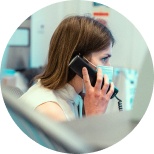
1 Speak to us
We will discuss the options that work for you in a free 15 minute consultation
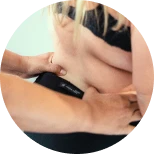
2 Book an appointment
visit our state of the art Harley Street clinic or we offer video consultations
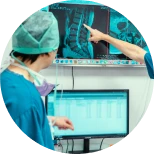
3 On the Day Diagnosis
Get assessed, scanned and diagnosed in one day
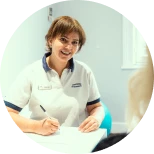
4 Treatment
A full pre-operative assessment will be carried out before surgery takes place

5 Follow Up Consultation (FREE and included)
To make sure you are better and back to doing what you love
Lumbar decompression is often used for treating these conditions
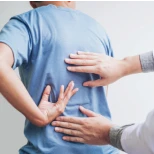
Compressed Nerves
Persistent pain being caused by a compressed nerve can be treated through decompression surgery.
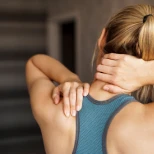
Spinal Stenosis
Narrowing of the spinal space can put pressure on the spinal cord and nerves. Decompression re-opens the space, removes the pressure and alleviates pain and numbness.

Herniated Disc
If the soft centre of a lumbar disc pushes onto the spinal cord or nerve and doesn’t improve over 6-8 weeks, decompression is a very successful remedy.
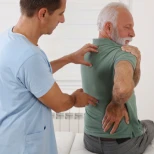
Spondylolisthesis
Extreme and consistent pain and leg weakness can be caused when one bone in the spine ‘slips’ over another and compresses a nerve. Decompression surgery can be the quickest most effective treatment.
Learn more about your symptoms
Use our DiagnoseMe Analyser to give you a steer on your condition and the next steps
Frequently Asked Questions About Lumbar Decompression
What is Lumbar Decompression?
Lumbar decompression is a type of surgery used to relieve pressure on the spinal cord or nerves in the lower back. This procedure is often performed to alleviate symptoms such as pain, numbness, or weakness.
How Long After Lumbar Decompression Can I Drive?
It’s generally recommended to avoid driving for at least two weeks post-surgery. However, the exact timeline can vary based on individual recovery. Always consult with your doctor before resuming driving to ensure it’s safe for you.
How Successful is Lumbar Decompression Surgery?
Lumbar decompression surgery has a high success rate, with many patients experiencing significant pain relief and improved mobility. Success rates can vary but are generally around 70-90% for suitable candidates. Discuss with your surgeon to understand the expected outcomes for your specific condition.
How to Sleep After Lumbar Decompression Surgery?
Post-surgery, it’s crucial to maintain proper spinal alignment while sleeping. Here are some tips:
- Sleep on your back with a pillow under your knees.
- If you prefer sleeping on your side, place a pillow between your knees.
- Avoid sleeping on your stomach, as it can strain your back.
How Serious is Lumbar Decompression Surgery?
Lumbar decompression is a major surgery, typically recommended when conservative treatments have failed. While it carries risks like any surgical procedure, it is generally considered safe and effective when performed by an experienced surgeon. Always discuss the risks and benefits with your healthcare provider.
What is Posterior Lumbar Decompression and Fusion?
Posterior lumbar decompression and fusion (PLDF) involves removing a portion of the bone or tissue that’s pressing on the nerves and then stabilising the spine with a fusion. This can help reduce pain and prevent further spinal issues.
What is Percutaneous Lumbar Decompression?
Percutaneous lumbar decompression (PLD) is a minimally invasive procedure where excess tissue is removed through a small incision using specialised instruments. This method typically results in a shorter recovery time compared to traditional open surgery.
For more detailed guidance or to discuss your specific condition, book a consultation with our expert spine team today. Your spine health is our priority.
The patient experience: Brian’s story
“For the first time in many months I walked from the recovery room and along the corridor without any pain whatsoever, it was hard to believe.”
The Problem
Brian was a retired fit 73 year old who enjoyed wildlife photography. In the spring of 2024 he started to experience pain in his hip and back, by August his walking was reduced to just 8 metres and he had resorted to a walking frame.
He was extremely despondent when he reached out to us. It had taken 9 months for Brian to get an MRI in the NHS, physiotherapy had not helped and he was desperate. Following his free 15 minute consultation Brian booked in for a scan consultation with Mr Caspar Aylott at the UK Spine Centre.
Our Diagnosis
Within 2 days of contacting us, Brian had a ‘Scan Consultation’ and was diagnosed with severe spinal stenosis at L4/5. Immediate electronic access to his MRI scan, a thorough history and examination enabled Mr Aylott to quickly diagnose critically severe spinal stenosis due to facet joint hypertrophy infolded ligamentum flavum and facet joint cyst.
The Treatment
Conservative treatment such as physiotherapy or injections was unlikely to be of much help for severe spinal stenosis. Within 12 days of his initial phone call Brian had lumbar decompression surgery at L4/5. Just one week after surgery Brian stopped all pain relief. Following surgery Brian had complete relief of his sciatic leg symptoms and had no back pain. Having struggled to walk to the end of his drive he was now walking without restriction and enjoying taking photographs of wildlife again.
Articles relevant to lumbar decompression
A comprehensive range of treatments
Lumbar decompression is just one technique amongst a comprehensive set of treatments we can provide on-site. We are one of the few clinics that can offer same day diagnosis through to treatment.
Our treatments have helped over 9,142 people get back to doing what they love.
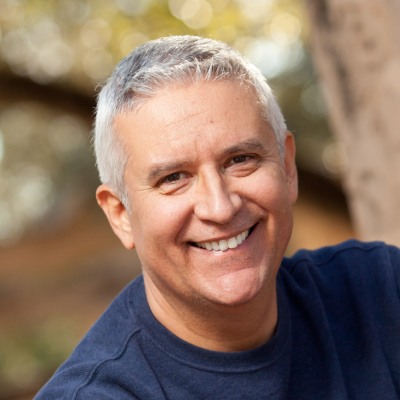
This was the best medical treatment I have ever received. After years of getting nowhere I was listened to and treated perfectly and with respect. I cannot recommend highly enough.
Alan Peterson, Tonbridge
Get fixed in 1 day! Day Case Spine Surgery
We are one of only a few centres in the world who routinely perform day case spine surgery. Our patients are up and about within a few hours of surgery and appreciate going home the same day.
Finance Options Available

We are able to offer monthly payment options so that you don’t need to wait to say goodbye to pain.
When are you going to say
goodbye to pain?
Don’t put up with it, don’t wait. Free 15 minute consultation.



